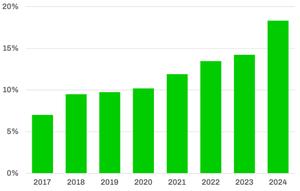13.05.2025
Software as the New Root Cause – The Rise of Infotainment and Software-Driven Recalls
Welcome to our new article series, where we examine the current state of infotainment system quality, uncover the root causes behind today’s challenges, and explore strategies for improvement.
The automotive industry is undergoing a foundational transformation: what used to be a primarily mechanical product is now rapidly evolving into a software-defined platform. Nowhere is this shift more visible, or more problematic, than in infotainment systems.
According to the 2024 J.D. Power Component Quality Insights, six of the top ten new-vehicle problems reported by customers stem from infotainment-related issues. Leading the list, yet again, is the problematic integration of Android Auto and Apple CarPlay — a consistent pain point for drivers and a major contributor to declining satisfaction scores across multiple OEM brands. Infotainment systems, which once served as value-adding conveniences, have become one of the most frequent sources of customer frustration. (UPDATE June 26, 2025: According to J.D. Power's 2025 research, infotainment remains the top quality concern in new vehicles.)
But the problem runs deeper than consumer irritation. Let's examine the insights provided by the National Highway Traffic Safety Administration.
A Surge in Software-Driven Recalls
Historically, software defects played only a minor role in automotive recalls. The first recall where “software” was mentioned happened in 1994. But the landscape is changing fast: in 2023, nearly 15% of all automotive recalls were tied to software problems — a threefold increase in recent years.

The upward trend has only accelerated. In 2024, the number of software-related recalls surged by 80%, from 112 cases in 2023 to 202. More strikingly, software-related issues accounted for 44% of all recalled vehicles, amounting to 15 million units in the US alone — an over fourfold jump from 2023’s 3.2 million vehicles. This explosion in numbers highlights how software issues are no longer isolated anomalies but a systemic challenge affecting the entire industry.
Infotainment at the Core
Among all software-related failures, infotainment systems and connected technologies are frequent culprits. One standout example in 2023 involved rearview camera systems. Due to software integration problems and embedded software crashes, over 1.3 million vehicles were recalled across brands like Tesla, Ford, Honda, Chrysler, Volkswagen, and Lucid. These recalls, often stemming from Tier 1 supplier software, were triggered by issues like “no image” screens — an ostensibly small defect that can escalate into a regulatory and safety compliance nightmare.
A System Under Strain
The growth of software in vehicle architecture has created a paradox: as OEMs strive to offer cutting-edge digital experiences, they expose themselves to risks they’re not yet equipped to handle at scale. The failure to robustly test and validate software before launch — especially in the complex environments of infotainment systems — leads to cascading problems, mounting recall costs, and worsening public perception.
Industry experts now warn that enhancing software quality and strengthening integration between internal and external software development teams is no longer optional. It is critical. Without a radical shift in how OEMs approach software development and validation, the gap between innovation and execution will only grow wider.
We’ve just scratched the surface. In the following articles in this blog series, we’ll dive deeper into the real-world implications and strategies shaping the industry. You won’t want to miss it, so stay tuned!
Other articles in this series:
- Chapter 2: When Code Breaks Safety – Infotainment and Cluster Failures Behind Growing Recalls
- Chapter 3: From Glitch to Courtroom – When Infotainment Defects Become Legal Liabilities
- Chapter 4: The Hidden Cost – Customer Frustration, Delays, and Brand Erosion
- Chapter 5: Why Software Defects Keep Slipping Through – The Core Problems Behind OEM QA Failures
- Chapter 6: Software Quality as a Competitive Advantage: Lessons from the Infotainment Crisis


